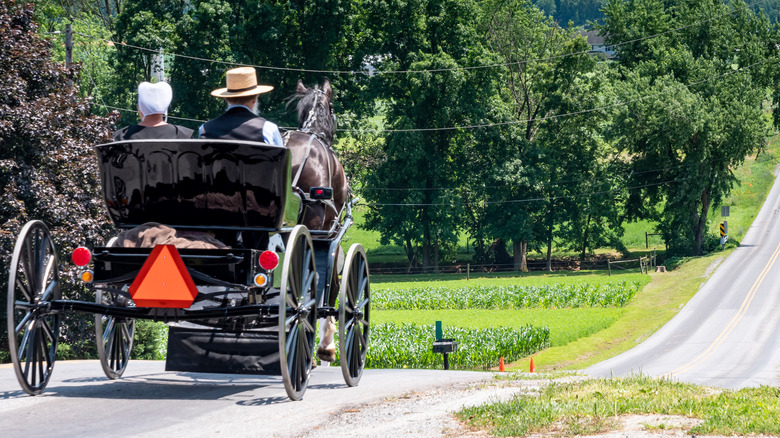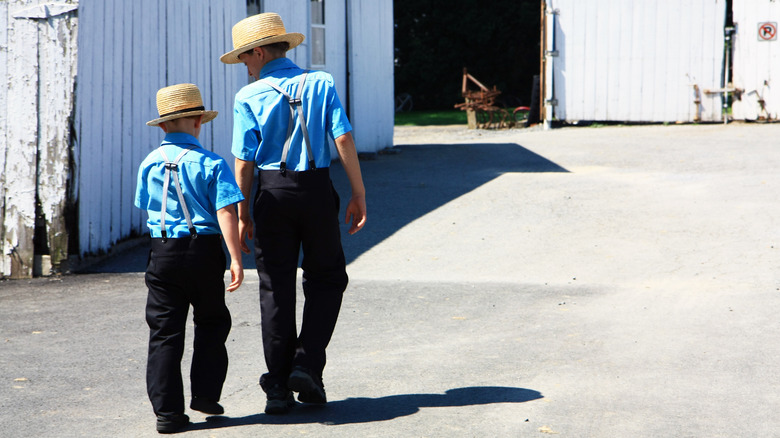How The Amish Drastically Affect The Environment
People might imagine the Amish as being at one with the natural world, what with the farming, the barn raisings, the tendency to stay off energy grids, and the use of horses and buggies over cars, just to name a few of their seemingly environmentally friendly practices. However, as reported by The Conversation, not only do beliefs and practices vary among the Amish, but their faith doesn't necessarily teach a reciprocal relationship between human beings and the environment. In 2018, writers David McConnell and Marilyn Loveless published their book "Nature and the Environment in Amish Life," the result of seven years of research using the frameworks of cultural anthropology and ecology to determine how the image of environmental consciousness lived up to the actual modern realities of life in the Amish community.
The authors interviewed over 150 Amish people. The findings indicated that despite the diversity across Amish groups, there's a general belief common within the religion that God created the Earth for people to use. One New Order Amish man is quoted as saying, "It wouldn't be a popular thing to say in society, but Man is dominant on the earth." Furthermore, many Amish people have left farming altogether, unable to compete with the speed and scale of industrialized agriculture, but those who continue to farm generally use pesticides and chemical fertilizers. There are Amish organic farming collectives, but the authors imply that those using organic methods do so not out of environmentalism but to cash in on the niche market for organic produce.
Environmentalism is not always compatible with Amish way of life
Per The Conversation, Amish children have a more nature-oriented childhood than most children, with lots of outdoor play as well as daily chores, and may study nature and take field trips in the course of their traditional eight years of schooling. However, they don't tend to learn about science, and have a minimal understanding of overarching scientific and natural processes, thanks to the subjects' absence from their curricula.
Another popular Amish industry is woodworking. As with farming, the authors of "Nature and the Environment in Amish Life" found little evidence of Amish woodworkers using sustainable logging practices. As the earth is often seen by the Amish as a temporary, transient home — a belief found within other Christian denominations, says The Christian Century – conservation and environmentalism are not priorities. One Amish sawmill operator told interviewers that regarding the Earth, "Even though we want to take care of it, it's not going to be quite as much of a priority if we know it's temporary." In fact, according to The New York Times, several Amish communities have had negative experiences with the Environmental Protection Agency, which under Barack Obama's presidential administration started targeting Chesapeake Bay pollution by inspecting Lancaster County farms for runoff and stream management problems and requiring expensive conservation plans. One anonymous Amish farmer told the Times, "We're not willing to make a big sacrifice in crops, just as anybody is not really willing to make a sacrifice in their wages. Our crops are our wages."

